Iranian Football Fans Disrupt Minute Of Silence For Gaza

Iranian football (soccer) fans on Friday defied a government decision to observe a minute of silence for Gazans during a match in Tehran, by blowing horns and shouting.

Iranian football (soccer) fans on Friday defied a government decision to observe a minute of silence for Gazans during a match in Tehran, by blowing horns and shouting.
The video of the protest quickly circulated on social media, as yet another manifestation of the public mood in Iran opposing the government’s ideological and material support for the Palestinian militant group Hamas.
The video captures the moment when spectators at the start of the game, reacted to the announcement for a minute of silence for Gaza with noise and the blaring of horns. The show of opposition occurred less than a week after a similar incident at a match involving Persepolis FC, where fans of that team chanted slogans against individuals displaying Palestinian flags in the stadium.
Remarkably, the video even prompted reactions from official Israeli social media accounts and authorities. Iran's leadership announced its full support for Hamas, an Iran-backed militant group responsible for a brutal attack on Israel and the massacre of around 1,400 people on October 7. Nearly 200 people, including women and children have also been taken hostage by the militants.
While the Iranian regime's propaganda apparatus organized street protests in support of Hamas in Tehran and other cities, reports from Iran suggest that the majority of participants were regime supporters and members of the Revolutionary Guard (IRGC) and their families. Ordinary Iranians largely refrained from participating in these rallies, emphasizing the complex and multifaceted nature of public sentiment within Iran.
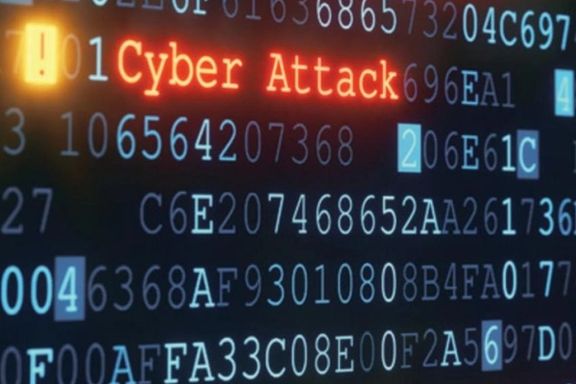
A hacking group with ties to Iran, known as the Crambus espionage group, executed an extensive intrusion into the computer systems of a Middle Eastern government.
The espionage group’s intrusion spanned an eight-month period from February to September 2023.
The cyber attackers employed a range of tactics during the operation, including the theft of sensitive files and passwords, Symantec revealed.
The perpetrators introduced a PowerShell backdoor called PowerExchange in one instance, providing them with the ability to not only monitor but also execute commands through email messages, surreptitiously forwarded from an Exchange Server. The campaign impacted a minimum of 12 computers, with strong indications pointing toward the deployment of backdoors and keyloggers on numerous other systems.
Evidence has also emerged suggesting that the attackers went as far as modifying Windows firewall rules to enable remote access, demonstrating their resourcefulness.
The Crambus espionage group has long been associated with espionage operations in multiple countries, including Saudi Arabia, Israel, the United Arab Emirates, Iraq, Jordan, Lebanon, Kuwait, Qatar, Albania, the United States, and Turkey.
The group is recognized for its prolonged intrusions, primarily focused on intelligence gathering and espionage. In recent times, they have incorporated a substantial social engineering component into the initial stages of their cyber-attacks.
The activities of the group over the past two years indicate that they pose a continuous threat to the Middle East and beyond.
The United States government had previously attributed the group to the Ministry of Intelligence of the Islamic Republic.
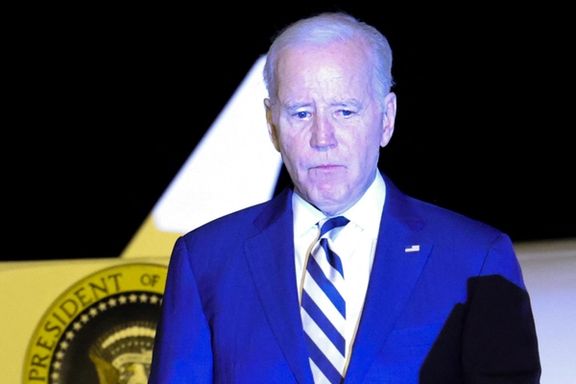
Hamas' attack on Israel that killed about 1,400 people aimed to disrupt a potential normalization of ties between Israel and Saudi Arabia, US President Joe Biden said on Friday.
Biden suggested Saudi wanted to recognize Israel in the comments he made at a campaign fundraiser.
Saudi Arabia gave its blessing to Persian Gulf neighbors United Arab Emirates and Bahrain establishing relations with Israel in 2020 under the previous US administration of Donald Trump.
Riyadh has not followed suit, saying Palestinian statehood goals should be addressed first.
"One of the reasons Hamas moved on Israel ... they knew that I was about to sit down with the Saudis," Biden said.
"Guess what? The Saudis wanted to recognize Israel."
Iran’s clerical regime, which has been the main financial and military backer of Hamas opposed any normalization deal, and top Iranian officials expressed their satisfaction that the Hamas attack apparently disrupted the process.
The potential normalization of relations with Saudi Arabia and other Arab states was a top priority for Secretary of State Antony Blinken during his June trip to Riyadh.
Blinken told CNN on Oct. 8 that "it wouldn’t be a surprise that part of the motivation (for the attack) may have been to disrupt efforts to bring Saudi Arabia and Israel together."
Biden told CBS' 60 Minutes in an interview that aired last Sunday that the prospect of normalization was "still alive, it's going to take time."
Israel responded to the Oct. 7 attack by pounding Gaza with air strikes, killing more than 4,000 people, and has said it will act to free hostages taken by Hamas militants while wiping out the group.
With reporting by Reuters
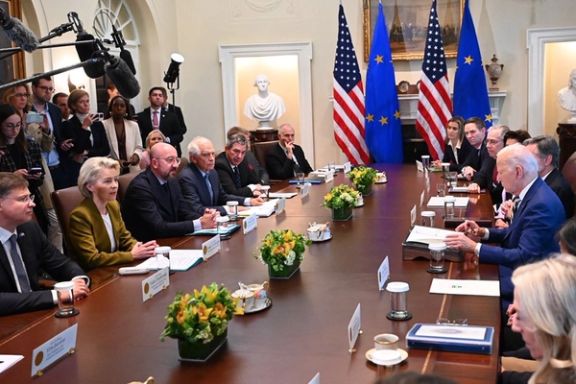
Two weeks after Hamas attacked Israel, diplomatic efforts have intensified to prevent a full-blown regional war involving Iran and its proxies in the Middle East.
On Friday, President of the EU Commission Ursula von der Leyen, who has traveled to Washington for a US-EU summit, raised the issue with US President Joe Biden.
“We must work actively to prevent regional escalation,” von der Leyen said, “I am particularly concerned about Iran and its proxies. We have all seen the incidents involving missiles and drones from Yemen potentially targeting Israel.”
Pentagon officials confirmed Friday that the American warship USS Carney intercepted 4 cruise missiles and 15 drones over a period of 9 hours in the Red Sea, all headed towards Israel reportedly.
Targeting Israel from a place as far as Yemen is yet another worrying sign that the Israel-Hamas conflict may very well escalate beyond Gaza.
Biden suggested on Friday that the aim of Hamas' attack on Oct. 7 was to disrupt the potential normalization of relations between Saudi Arabia and Israel.
Tensions run high, particularly since an explosion in a Gaza hospital for which Israel and Hamas blame one another. Arab leaders are anxious about the popular rage in their countries, created by the plight of Gazans.
Many fear that the war between Israel and Hamas may bring in other regional actors such as Hezbollah or Shi’a armed groups in Iraq.
German foreign minister Annalena Baerbock warned these groups to not enter the conflict. “I'm warning Iran,” she said during her trip to Israel, “I'm warning Shiite militias in Iraq, I'm warning the Houthi in Yemen not to ignite and join in the terror."
The biggest threat to Israel, however, is Hezbollah in Lebanon, which has been engaged in a relatively low-profile war with Israel for more than a week. The Group has reportedly amassed tens of thousands of rockets since Israel’s last attack on southern Lebanon in 2006.
Hezbollah’s shelling of northern Israel has forced the country’s Defense Ministry to preemptively evacuate around 20,000 of the border town of Kiryat Shmona.
There is little doubt that Hezbollah, Houthis, and other militant groups in the region are more emboldened than ever before. And more than a few in Washington and elsewhere are pinning the blame on President Biden for what they see as a cowed Iran policy.
Senator Tom Cotton, a vocal critic of the administration said Friday: “President Biden needs to make it crystal clear to Iran that we will treat any proxy attack on American targets as an attack by Iran itself and respond accordingly. Anything less invites more violence.”
In a rare speech from the Oval Office Thursday evening, President Biden asked for billions to be spent on the conflicts in Ukraine and Israel, but strikingly mentioned Iran only once.
Around the same time as Biden was addressing Americans, rockets hit a military base near Baghdad's international airport which hosts US troops and forces from other countries. Ironically, this was the day after a big chunk of UN sanctions on Iran –including on its missile program– expired under the terms of the 2015 Nuclear Deal.
“Biden has given Iran another gift by permitting a set of UN sanctions on Iran to expire, even after Iran and its terror proxies orchestrated a heinous attack massacring and kidnapping American and Israeli citizens,” said Ron DeSantis, Governor of Florida and 2024 Presidential Candidate.
In a lengthy post on X, DeSantis laid out six actions aimed at curbing the Iranian regime's influence, which include "imposing severe sanctions," "halting all clandestine negotiations and agreements," and "urging US allies to designate the IRGC as a terrorist organization."
“America must turn the screws on the Mullahs,” he concluded.
Republicans on the Capitol have been mounting pressure on Biden for many months, especially since the ‘double scandal’ in September: the exposure of an Iran influence network and the $6 billion ransom to free five Iranian-American hostages held in Tehran.
On Thursday, Rep. Darrel Issa introduced a bill that would force the Biden administration to sanction Iran, according to Fox News. He hammered Biden for ‘systematically’ under-enforcing oil sanctions and freeing Iranian funds in Iraq.
“This comprehensive legislation marks a necessary course correction in American policy to treat Iran not as a strategic partner, but as the enemy they are," he said, calling his bill the No Funds for Iran-Backed Terror Act.
The measure was introduced Thursday. Republicans in the House have still yet to come to agreement to elect a new speaker after Rep. Kevin McCarthy was voted out from the post earlier this month.
The legislation cannot be considered until a new House speaker is elected.

To defend Palestine is a Quranic command, Ayatollah Ahmad Alamolhoda, a firebrand senior cleric told worshippers on Friday, as tensions remain high in and around Gaza.
God commanded Muslims to defend and protect the Al-Aqsa Mosque, the hardliner cleric said, and that means keeping “infidels” away from Jerusalem.
Alamolhoda is Supreme Leader Ali Khamenei’s representative in one of the most important Shiite cities, Mashhad, where a revered imam is buried. He is also the father-in-law of Ebrahim Raisi, who was handpicked by Khamenei to become president in 2021, simply by barring all other serious candidates from running, in what turned out to be a selection rather than an election.
One of the special characteristics of Palestine, he said, is that God defeats all infidels in the blessed land. “The Holy Essence proclaims that divine signs are manifest in the land of Palestine. Any atheist movement with intentions of trespassing and committing crimes in this land shall be annihilated.”
The hardline rhetoric comes even though Islam recognizes Jews and Christians as peoples of God, and not pagans. However, as signs emerge that many in Iran do not support the government’s policy of full financial and military backing for the militant groups, state propaganda intensifies.
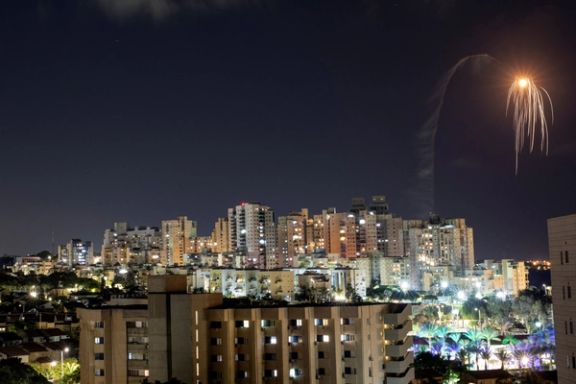
Alamolhoda also drew parallels between the present day and the era of Crusaders, saying that Muslims were able to take back Jerusalem after Christian invaders occupied the land. He went on to boast that Iran’s regional proxies, such as the Lebanese Hezbollah and Iraqi Shiite militias are engaged in the conflict, emphasizing that Hezbollah has 100,000 precision missiles.
Khamenei’s trusted cleric said that all militant groups are ready to help Hamas, fighting against Israel and “destroying that cancerous cell.” He emphasized that these groups are not afraid of the United States.
In what appeared to be coordinated remarks by Friday Imams across the country, Khamenei’s appointed Imam in Fars province stated that "Hamas's attack on Israel was a defensive move accompanied by courage and heroism." He added, "We tell Israel's accomplices that resistance will not let you rest until the end of your era."
Tehran Friday Imam, Kazem Sedighi, praised Hamas’ attack and claimed that they did not kill any civilian and all 1,500 victims were Israeli soldiers.
The Imam in Gilan Province claimed that thousands of Revolutionary Guard, naval and other military forces have announced their readiness to go to Gaza and fight.
Many Iranians opposed to the Islamic Republic are mocking regime supporters, telling them to “please act according to your ideology and go to Gaza to fight.” Their message is that if regime supporters die in the war, the people of Iran will live in peace.
Hardline clerics also organized a gathering in the religious city of Qom, where it was claimed “youth from 100 countries” who were dubbed “lovers of fighting Israel” were present. Iranian media said that Bahrain’s Sheikh Isa Qassem, a pro-Iran Shiite cleric also attended.
A message from Khamenei’s foreign policy adviser Ali Akbar Velayati was read during the ceremony, which praised those ready to struggle for Palestine. Representatives of Hamas and the Islamic Jihad militant groups also attended.
Alireza Panahian, Khamenei’s chief of staff delivered remarks, saying that Hamas was “saving its energy for heavier blows against Israel.”
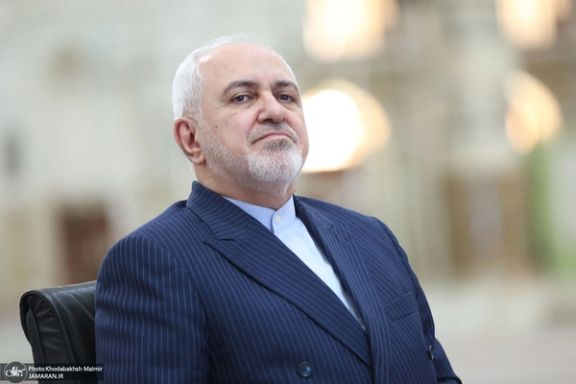
Iran's former Foreign Minister Mohammad Javad Zarif has said that recent events in the Middle East have taken away Israel’s claims to being indestructible.
In remarks about the Hamas-Israel war, Zarif on Friday said that Israel had solidified its reputation as an invincible power amongst Palestinians, and the Arab and international community by carrying out aggressive actions.
“Israel’s fake image of resistance is now ruined. Israel’s barbaric actions is the reason for their continues defeat,” Zarif said.
Zarif, who negotiated the JCPOA nuclear accord with the United States in 2015 said that Israel has kept the Palestinians in a prison for 70 years.
In parts of his comments, Zarif spoke about IRGC’s notorious operator Qasem Soleimani and claimed that the debt the Middle East owes him for regional security.
As the commander of IRGC’s Quds extraterritorial force, Soleimani was the architect of Iran’s proxy warfare in the region, including his role in the Syrian civil war during which hundreds of thousands died. He was killed by a US drone attack in 2020.
The former foreign minister said that European countries have been preaching about human right, but they are now supporting the killings of civilians in Gaza.
“The Europeans are gagged about Israel’s crimes,” Zarif said.
This is while Iran experienced several uprisings during Zarif’s term as foreign minister (2013-2021) where authorities killed and arrested tens of thousands of people for protesting.
Also, it was during Zarif’s tenure that the Ukraine International Airlines Flight PS752 was shot down by two air-defense missiles fired by the Islamic Revolutionary Guard Corps on January 8, 2020, shortly after taking off from Tehran's Imam Khomeini International Airport.